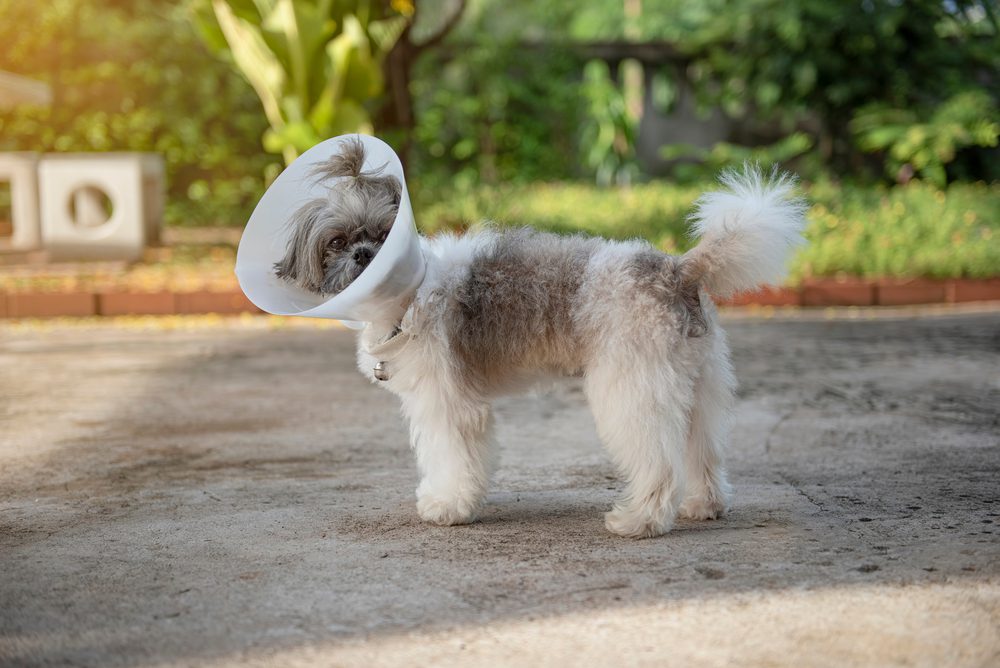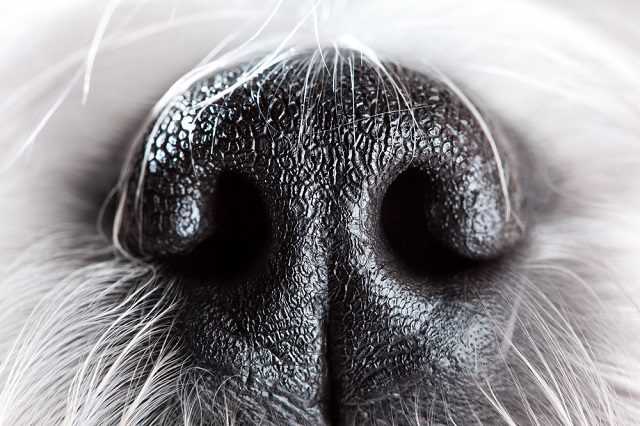Neutering A Shih Tzu: Is It Good Or Bad? (Pros & Cons)
Neutering a Shih Tzu is a decision many pet owners face at some point in their dog’s life. While neutering is a routine procedure that veterinarians commonly recommend, it has pros and cons.
On the one hand, neutering has the potential to offer several health and behavioral benefits for your Shih Tzu. For example, it can reduce the risk of certain types of cancer, prevent unwanted pregnancies, and reduce the likelihood of certain types of aggression. On the other hand, neutering can also have some potential drawbacks, such as the risk of surgical complications and the possibility of negative impacts on your dog’s overall health and behavior.
Is neutering a Shih Tzu a good idea? The answer ultimately depends on your circumstances and the needs of your furry companion. In this article, we will explore the pros and cons of neutering a Shih Tzu in-depth to help you decide what is best for your dog.
What is Neutering?
Neutering is a surgery that means your male Shih Tzu can’t have puppies. Think of it like a superhero power that helps prevent certain illnesses and stops unwanted behaviors. It’s a bit different for female dogs; that’s called spaying. But today, we’re focusing on our male furry friends.
Is Neutering a Shih Tzu Good or Bad Idea?
Regarding neutering a Shih Tzu, there is no one-size-fits-all answer. There is much debate over whether neutering a Shih Tzu is good or bad. The decision of whether or not to neuter should be made on a case-by-case basis, considering the dog’s specific needs and personality.
There are different opinions about neutering a Shih Tzu. Some owners neutered their Shih Tzu to reduce aggression, roaming, and marking behavior. Other owners decide against neutering because they feel it is unnecessary or cruel. Ultimately, the decision of whether or not to neuter a Shih Tzu should be made by the owner in consultation with a veterinarian.
What is the Best Age to Neuter a Shih Tzu?
Most veterinarians agree that neutering should be done before a dog reaches sexual maturity. It typically occurs between six and nine months of age. However, some veterinarians may recommend neutering earlier or later, depending on the dog’s needs. Neutering an older dog is still beneficial and can provide some health benefits. Ultimately, the decision of when to neuter or spay a Shih Tzu should be made in consultation with a veterinarian.
How long does Neutering take to Recover?
Neutering a Shih Tzu is a simple surgery that doesn’t take long to recover from. The most considerable risk with neutering is anesthesia, which can be dangerous for any dog, tiny breeds like the Shih Tzu. For this reason, having your dog neutered by an experienced veterinarian who can safely administer anesthesia is essential.
The surgery itself only takes a few minutes, and most dogs can go home the same day. Recovery from neutering is usually relatively quick, with most dogs feeling back to normal within a week or so. There may be some soreness and swelling around the incision site, but this should resolve independently with time.

Overall, neutering is a very safe and straightforward procedure that comes with a host of benefits for both dogs and their owners.
Shih Tzu Behavior after being Neutered
Neutering a Shih Tzu can change its behavior in several ways. The most common change is that they will become less aggressive and more easygoing. They may also become less active, gain weight, and start to sleep more.
However, neutering will not necessarily change all of Shih Tzu’s behaviors. Each dog is different and will respond to neutering in its way. Some may remain active and playful, while others may become more subdued.
The best way to determine how neutering will affect your Shih Tzu is to speak with your veterinarian. They can advise you on what to expect and help you decide whether neutering suits your dog.
What is the Cost of Neutering a Shih Tzu?
The cost of neutering a Shih Tzu can vary depending on the age, weight, and health of the dog, as well as the geographic location. However, the average cost is between $50 and $200.
On average, spaying a female Shih Tzu costs more than neutering a male Shih Tzu. The procedure is generally safe and straightforward, and most dogs recover quickly without complications.
Pros and Cons of Neutering a Shih Tzu
There are both benefits and drawbacks to neutering a Shih Tzu:
Benefits (Pros) of Neutering a Shih Tzu
Neutering a Shih Tzu is a good way to help ensure the health and happiness of both the dog and the owner. It has a number of benefits for both the dog and the owner.
1. Reduces the risk of certain health problems
Shih Tzus that are not neutered are at an increased risk of developing testicular cancer. This type of cancer is relatively rare in dogs but is more common in dogs that have not been neutered. Additionally, neutering can help to reduce the risk of prostate problems, such as infection and enlargement.
2. Reduces problem behaviors
Unneutered male dogs often display problem behaviors, such as urine marking, mounting, and aggression. These behaviors are often the result of hormones that are present in unneutered dogs. When a dog is neutered, these hormones are no longer present, which can help to reduce or eliminate these problem behaviors.
3. Makes your dog less likely to roam
Unneutered dogs often roam in search of a mate. It can lead them to leave your property and put themselves in danger. Neutering your Shih Tzu will help reduce their desire to roam and make them more likely to stay close to home.
4. Makes your dog less likely to get into fights with other dogs
Unneutered male dogs often view other unneutered males as competition for mates. It can lead to fighting between dogs, which can be dangerous for both animals. Neutering your Shih Tzu will help to reduce their desire to fight with other dogs and make them more likely to get along with other animals.
5. Avoids unexpected litters of puppies

If you do not want your Shih Tzu to have puppies, neutering is the best way to prevent this. Although you may think you can find homes for all the puppies, it is often difficult to find good homes for more than a few.
Additionally, millions of homeless animals are already in shelters across the country, so adding more puppies to this population is not ideal.
Related: How Many Puppies Can A Shih Tzu Have: Complete Guide
Drawbacks (Cons) of Neutering a Shih Tzu?
There are just some of the potential drawbacks of neutering a Shih Tzu:
1. Increased risk of obesity

Neutered dogs are more likely to become obese than those that are not neutered. It’s because removing the testicles decreases the amount of testosterone in the body, which can lead to a decrease in metabolism. Obesity can lead to various health problems, including joint, diabetes, and respiratory problems.
2. Urinary incontinence
Urinary incontinence is another common problem in neutered dogs. The removal of the testicles can cause the muscles that control urination to become weakened, which can lead to urine leakage. This problem is most common in older dogs but can occur at any age.
3. Behavioral changes
Neutering can also cause behavioral changes in dogs. For example, some dogs may become more aggressive after being neutered, while others may become timider. These changes are usually temporary, but they can frustrate owners who are not expecting them.
4. Hormone imbalances
The removal of the testicles can also cause hormone imbalances in dogs. These imbalances can lead to problems, including hot spots, hair loss, and skin infections.
5. Digestive issues
Some dogs may experience digestive issues after being neutered. These problems can include diarrhea, vomiting, and constipation. Usually, these issues will resolve independently within a few days or weeks. However, if your dog continues to experience digestive problems after being neutered, it is essential to consult your veterinarian.
6. Pain and swelling at the incision site
As with any surgery, there is always a risk of pain and swelling at the incision site following neutering surgery. Most dogs will recover from this quickly and without any complications. However, monitoring the incision site and contacting your veterinarian if you notice any redness or discharge is crucial.
7. May not be able to participate in competitions

If you are planning on showing your Shih Tzu in competitions, you should be aware that many organizations do not allow dogs that have been neutered to compete. It’s because neutering can affect a dog’s appearance and performance in a negative way.
Conclusion
So, should you neuter your Shih Tzu? The answer is a resounding yes – for the sake of your dog’s health and well-being. Neutering not only helps prevent specific health problems down the road but can also improve your dog’s behavior. It’s important to note that the best age to neuter a Shih Tzu is between six and nine months old, and most dogs recover quickly from the surgery. If you’re on the fence about neutering your Shih Tzu, please be sure to weigh all the pros and cons before deciding. And as always, consult with your veterinarian about what’s best for your pet.







